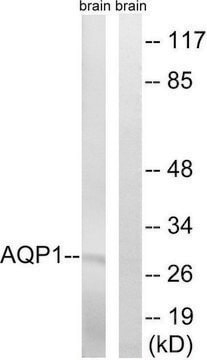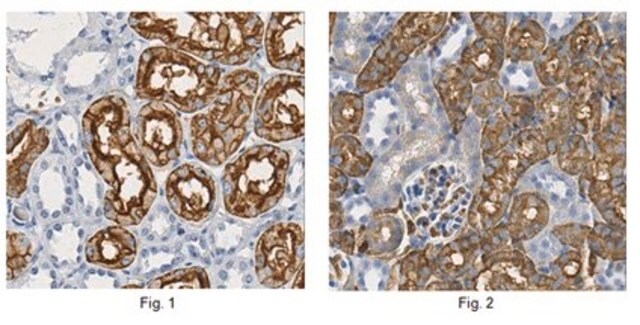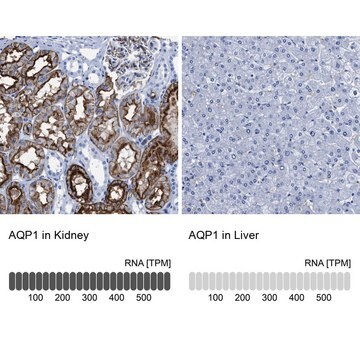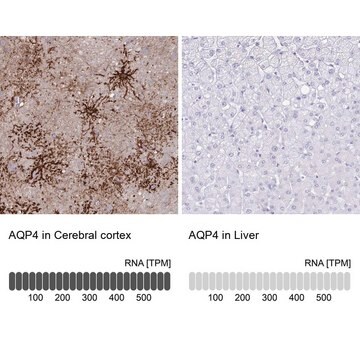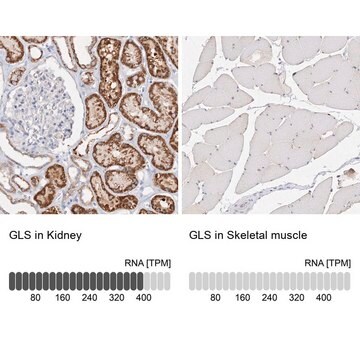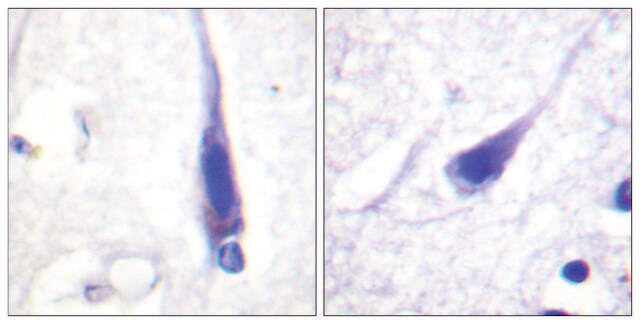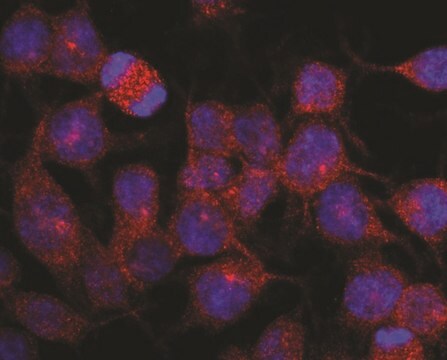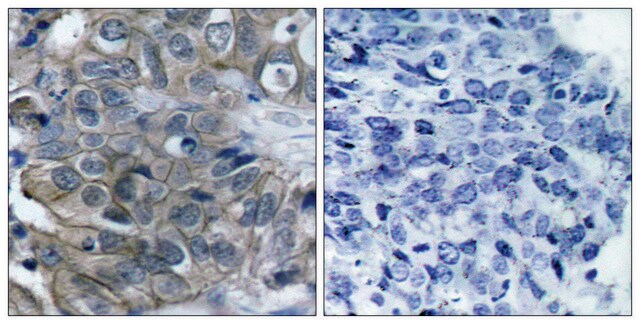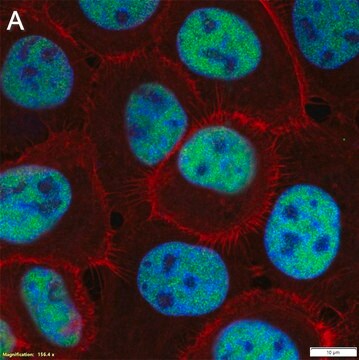SAB5200109
Anti-AQP1 antibody produced in rabbit
1 mg/mL, affinity isolated antibody
Synonym(s):
Anti-AQP1, Anti-Aquaporin 1, Anti-Water channel protein CHIP29
About This Item
Recommended Products
biological source
rabbit
Quality Level
conjugate
unconjugated
antibody form
affinity isolated antibody
antibody product type
primary antibodies
clone
polyclonal
form
buffered aqueous glycerol solution
mol wt
antigen predicted mol wt 28.5 kDa
species reactivity
mouse, human, rat
concentration
1 mg/mL
technique(s)
indirect immunofluorescence: suitable
western blot: suitable
NCBI accession no.
UniProt accession no.
shipped in
wet ice
storage temp.
−20°C
target post-translational modification
unmodified
Gene Information
rat ... Aqp1(25240)
General description
Specificity
Immunogen
Biochem/physiol Actions
Features and Benefits
Physical form
Disclaimer
Not finding the right product?
Try our Product Selector Tool.
recommended
Storage Class Code
10 - Combustible liquids
WGK
WGK 1
Flash Point(F)
Not applicable
Flash Point(C)
Not applicable
Choose from one of the most recent versions:
Certificates of Analysis (COA)
Don't see the Right Version?
If you require a particular version, you can look up a specific certificate by the Lot or Batch number.
Already Own This Product?
Find documentation for the products that you have recently purchased in the Document Library.
Our team of scientists has experience in all areas of research including Life Science, Material Science, Chemical Synthesis, Chromatography, Analytical and many others.
Contact Technical Service